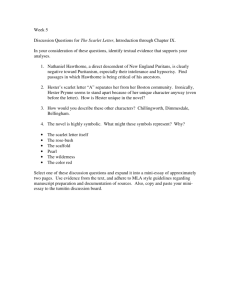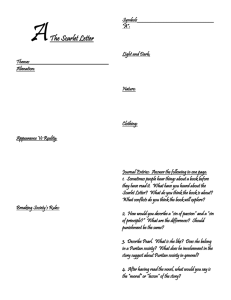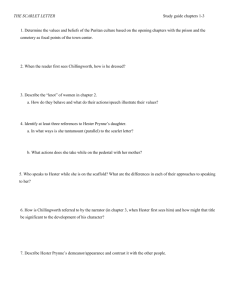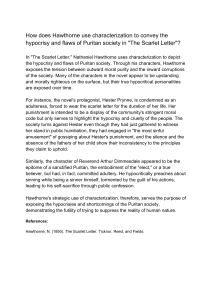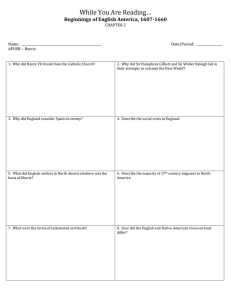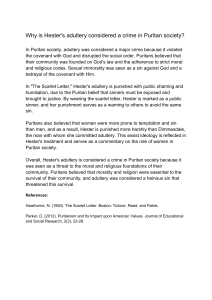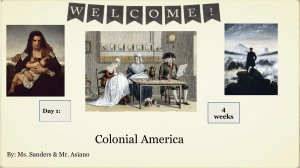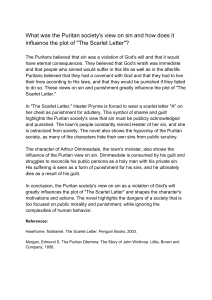The Scarlet Letter Hawthorne: 1804-1864 : 1850
advertisement
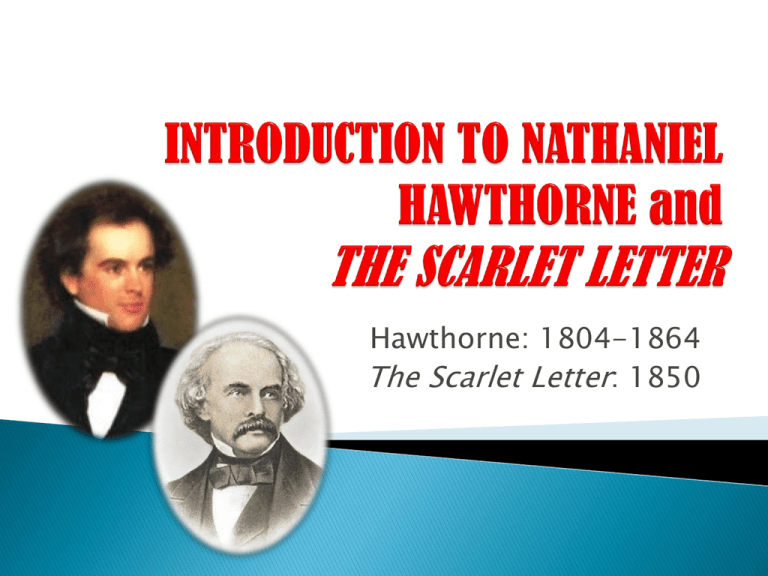
Hawthorne: 1804-1864 The Scarlet Letter: 1850 PURITAN ERA: Mid-late 1600s Salem Witch Trials: 1692 (Judge Hathorne) Puritan “Religious Enlightenment”: Mid 1700s, Jonathan Edwards Forming of our Nation: 1776 Industrialization and Railroads: About 17601840 Transcendentalism (American Romanticism) 1830s- 1850s True Birth or American Fiction: Hawthorne, Melville, Poe The Scarlet Letter 1850 Works are often allegorical in nature Work is considered a “Dark Romanticism Writes about Evil, Sin, and Psychological complexities Writing style contains many sentences clearly not composed with celerity Protagonist: Hester Prynne Setting: Boston, late 1600s Published: 1850 Central characters Themes: ◦ ◦ ◦ ◦ Hester Prynne Roger Chillingworth Pearl Dimmesdale ◦ ◦ ◦ ◦ Individual vs Society The Nature of Evil Nature and Romanticism Sin, Guilt, and Atonement Living within a Theocracy Puritans sought to create the ideal Christian society Everyday life was seen as a struggle between God and the devil Predecessors-Calvanists Living in a Theocracy: Religion governs The most common New England colonial punishment was use of the stocks. Stocks were heavy wooden frames with holes for ankles and/or wrists The pillory was similar, but allowed the accused to stand while his or hands were bound. Most whipping sentences called for 20-40 lashes One case on record recalls a man being whipped 117 times A hot iron was sometimes used to pierce the tongues of those who spoke against the Puritan faith. •The threat of execution was omnipresent in the colonies. •Hanging was the most common method of execution, although burning at the stake was also used. Criminals were sometimes forced to wear a letter symbolizing the crime committed. “T” stood for thief “D” was worn by those accused of public drunkenness What do you think the letter “A” stood for? 1. Should adultery be a crime punishable under law? ◦ Make a case for and against 2. How much should our laws govern our own morals? 3. Where do we draw the line between morality and law? Can the two be linked? Are morals to closely connected to religion? 1. Discuss the perception most people have of the Puritans vs what the author clearly points out. Talk about the Puritans’ views of the Individual vs their views of the Society.
